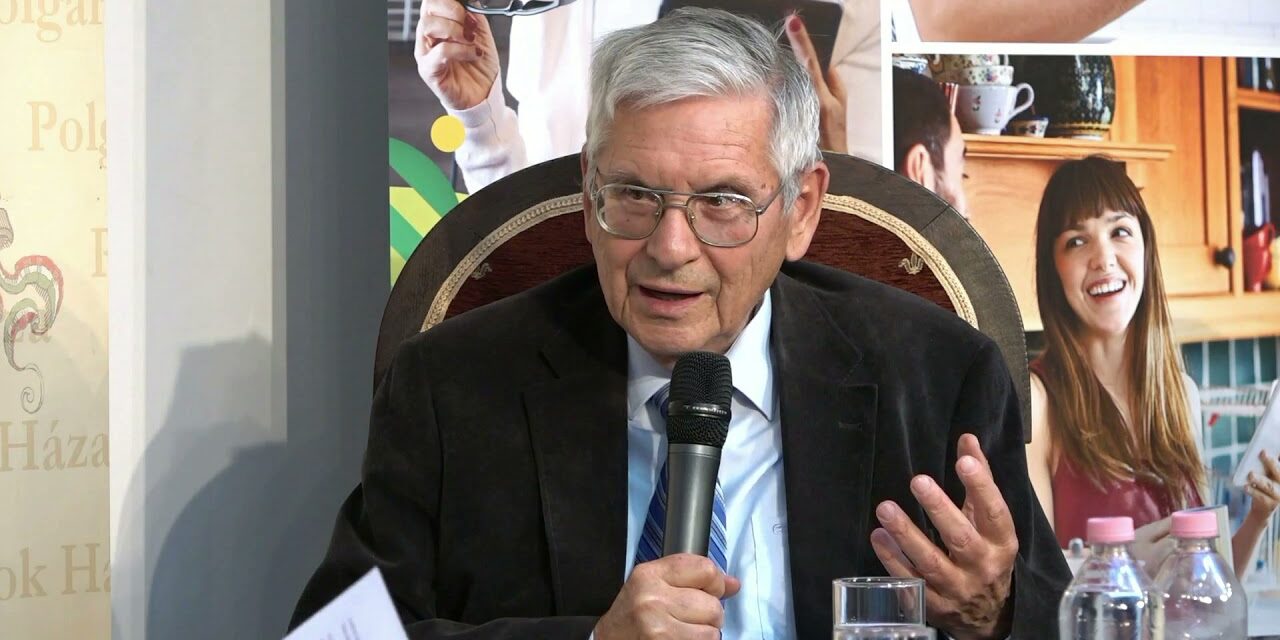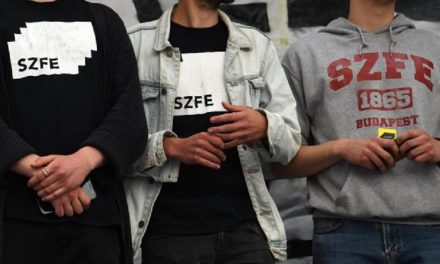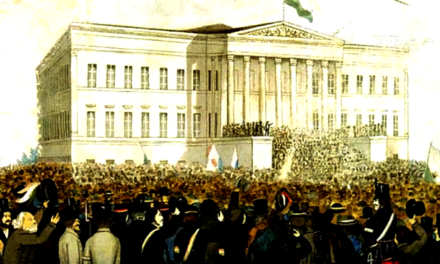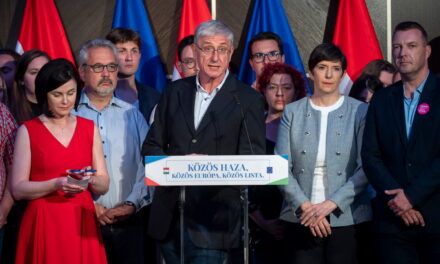Count Franz Conrad von Hötzendorf (1852–1925), Austrian military officer, imperial and royal field marshal, was chief of staff of the forces of the Austro-Hungarian Monarchy between 1912–17. He gave the name to the Konráds of the café, those well-informed know-it-alls who would have won the World War at a café table. Although the term is already a hundred years old, there are still enough Konrads from Káféház who know how and how the Russian-Ukrainian war can end, we present some of them.
The BBC asked five experts about what to expect on the Russian-Ukrainian front in 2023. Two of the five experts expect a clear Ukrainian victory. Andrei Piontkovsky , a Washington scientist and analyst (but in all likelihood a Russian dissident), Ukraine will fully restore its territorial integrity by the spring of 2023 at the latest. He supports his conclusion with two factors. One is the motivation, determination and courage of the Ukrainian army and the Ukrainian nation as a whole, which, according to Piontkovsky, has never been seen in modern military history. The other is NATO's determination to supply Ukraine with the appropriate offensive weapons. The timing of the inevitable Ukrainian victory will be determined by how quickly NATO can deliver the required tanks, aircraft and long-range missiles. According to Piontkovsky, the Russian capitulation will be officially agreed upon after the decisive Ukrainian advance. After that, the victorious powers - Ukraine, Great Britain and the United States - will establish a new international security system.
Ben Hodges , the former commander of the United States Army in Europe, has a similar opinion, who says that by the end of 2023, Ukraine will win a complete victory, and Crimea will once again be under Ukrainian control and sovereignty . However, it is conceivable that, based on some agreement, Russia will be allowed to use the Sevastopol military port until 2025.
The other three experts are more cautious and make the result dependent on the expected spring Russian offensive. Michael Clarke , co-director of the British Institute for Strategic Studies, in 2023 there is at most a short and uncertain ceasefire. Putin has made it clear that he will not stop the military operations, and Ukraine is fighting for its life.
Barbara Zanchetta , an employee of the Department of War Studies at King's College in London, there is currently no prospect of negotiations, because for a possible peace agreement, the demands of at least one side would have to change fundamentally, but there are no signs that this could happen in the near future. However, the material and human costs of the war could break the commitment of the Russian political elite and bring about changes in Russia. However, this can only happen if the West - despite the increased domestic political pressure against the costs of the war - stands firmly in support of Ukraine. Taking all this into account, according to Zanchetta, we can expect a protracted political, economic and military battle, and at the end of 2023, the war will most likely still be ongoing.
Der Spiegel also produced an analysis , which is quite recent (February 10), but it rather analyzes the conditions of the three possible outcomes of the war. These three possible scenarios are: (1) Ukraine wins, (2) Russia wins, (3) a Korea-like situation develops. According to the analysis, for Ukraine to win, that is to regain its pre-2014 territory, it needs long-term help, including tanks, planes and money. Russia can win if the West does not give these weapons to Ukraine. The authors of the analysis accuse American conservatives of questioning the usefulness of arms shipments. They blame primarily Tucker Carlson, one of the most influential right-wing TV personalities in the United States, who consistently uses his Fox News show to come down hard on Biden and Republicans who support arms shipments to Ukraine.
If we continue to look at the newspapers, we can discover many more speculations about the outcome of the war, and we can also observe that there is a sharp break between the assessment of the situation by conservative newspapers and scientific research institutes and the mainstream media. Conservative media like Fox News and conservative think tanks like the Cato Institute want to settle with Russia. For example, Ted Galen Carpenter, the Cato Institute's senior associate in charge of defense and foreign policy studies, compares the current war, and within it the successes of the Ukrainians in the fall, with the American Civil War. In the American Civil War, the Northern Unionists attacked first, but the Southern Confederate forces were initially more successful, but later the Unionists, who were superior in numbers and technology, rallied and were eventually able to win. According to Carpenter, we are currently facing such a situation, so instead of further bloodshed, it would be advisable to come to an agreement with the Russians so that Ukraine receives neutral status.
One of the leading newspapers of the Irish, who do not always sympathize with the British, the Irish Times, writes that by increasing military aid, the West risks becoming a belligerent. Without Western support, Ukraine's war efforts would have collapsed months ago, so the continuation of the war will require hundreds of thousands more Russian and Ukrainian victims. Ukraine's economy is in ruins, millions of Ukrainian citizens have fled the country, and even more have been forced to migrate internally. As Putin moves closer to some sort of military victory, the voice of those urging restraint will be needed more than ever, reports the Irish Times. The more territory Ukraine loses, the more victims the war claims, the more the West will be tempted to take another escalation step towards full-scale war with Russia.
New York Times supports anti-war voices Christopher Caldwell , one of the newspaper's external commentators, writes in an article that it would be in the interests of Russia and Ukraine to come to an agreement with each other, but the United States has other plans. Many Americans cannot resist calling Putin a "barbarian" and his invasion of Ukraine a "war of aggression." The Russians, on the other hand, say that there is now a war in which Russia is fighting the United States for its survival. We must not forget, writes Caldwell, that whatever values each side represents, this war is not fundamentally a clash of values. This is a classic war between states, fought on the border between empires for territory and power. In this confrontation, Russia has little room to back down, so it is forced to follow the United States through escalation.
I myself share the thinking of American conservatives. Actually, this war should not have broken out if the American shell had been satisfied with the annexation of the former socialist countries and the Baltic states. I would like to remind you that the eastward expansion of NATO took place despite the fact that the US Secretary of State James Baker promised in 1990 that NATO would not expand even an inch to the east in return for a united Germany's NATO membership, despite this, in 1999 Hungary, Poland and the Czech Republic already became a member of NATO, and despite Russian protests, NATO expansion continued. However, Ukraine was the red line in the eyes of the Russians. Here, the decisive turning point took place at the 2008 NATO summit in Bucharest, when Ukraine was invited to join NATO despite the opposition of the founders of the European Economic Community (ie Germany, France, Italy and the Benelux states) as well as Hungary. According to contemporaneous surveys, two-thirds of the population of Ukraine opposed NATO membership, and only with the 2014 coup was it possible to put leaders committed to NATO membership at the head of the country.
While for Russia, the neutrality of Ukraine and the retention of Crimea is a matter of life, for NATO and the American husks that control it, it is only a matter of prestige, which does not entail either blood sacrifices or financial sacrifices, since the blood is provided by the Ukrainians and the money by the American taxpayers. The abundance of money on the one hand, and the protection of basic security needs on the other, will mean that the war will continue for a long time, but the end result - if there is enough perseverance and sacrifice in Russian society - will be a Russian victory. Viewed from this perspective, Ukraine's interest would be to conclude peace as soon as possible with as little human sacrifice as possible.
The author is an economist and a consultant to the National Forum
Source: Magyar Hírlap
Photo: civilek.info













